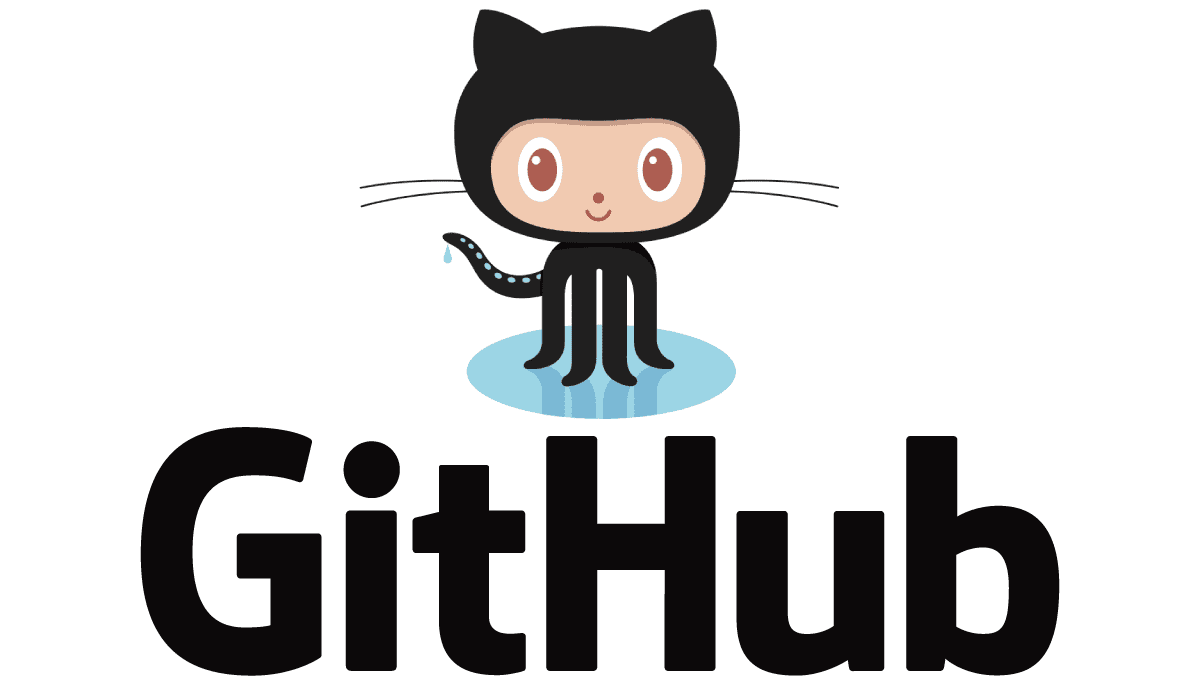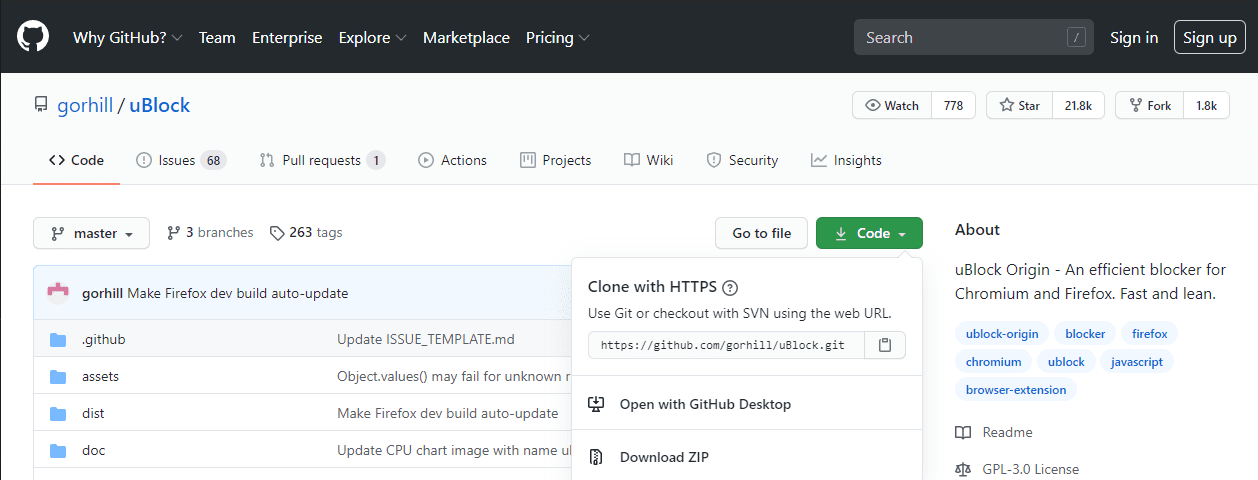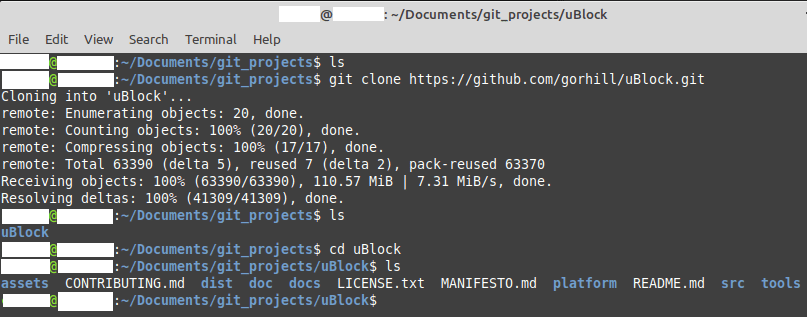Each project in Git is saved in an independent repository.
GitHub is the most popular website for hosting repositories but far from the only one.
There are other public hosting sites such as Bitbucket, as well as self-hosted options such as GitLab.

All sources work through the same Git protocol, the only difference for basic usage is the URL used.
To download a repository so you could contribute to its development, it’s crucial that you clone it.
For example, the uBlock Origin ad-blocker can be cloned fromhttps://github.com/gorhill/uBlock.git.

In GitHub, the install link is found above and to the right of the code.
Tip: ~/ is a Linux shorthand indicating that the path starts in your users home directory.
Running the command git clone [git_install_link.git] will create a new subdirectory and roll out the repository there.

Its recommended that you research what options are offered by your provider and then choose the most secure option.
Common authentication options are tokens, SSH keys, and passwords.
Most providers will have guides as to how to configure the supported authentication options for the platform.
For example, Atlassian has a detailed guide for configuring SSH authentication for its Bitbucket platformhere.
This username will be used by default for all connections from your user account.
The global config file can be found in ~/.gitconfig.
Your credentials will automatically be used to authenticate.